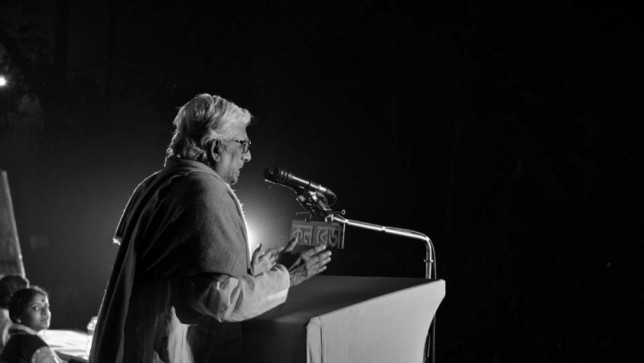Renowned journalist and cultural personality Kamal Lohani, who tested Covid-19 positive, died at a city hospital today at the age of 86.
He was undergoing treatment at the ICU of Sheikh Russel Gastro Liver Institute and Hospital in Mohakhali.
“We declared him dead at 10:00am,” Faruk Ahmed, director of the hospital, told The Daily Star.
Yesterday, Kamal Lohani’s daughter Urmi Lohani said her father was admitted to Health and Hope Hospital on Wednesday for kidney and lungs-related complications, and was on life support at the intensive care unit (ICU) of the hospital.
“We found out in the morning that he is Covid-19 positive,” Urmi said.
Kamal had earlier been admitted to Health and Hope hospital in mid-May with kidney and lung problems.
He was taken back home after two weeks of treatment. “But we were compelled to take him to the hospital again as his condition deteriorated drastically,” his son Sagar Lohani said yesterday.
Ekushey Padak recipient Kamal Lohani’s words and activism inspired millions to survive and emerge victorious against the genocide of 1971.
Born in Shantala village of Ullahpara upazila in Sirajganj on June 26, 1934, he grew up witnessing India’s independence movement and the partition.
He played a significant role in different sociopolitical and democratic movements, including 1952 Language Movement and the Liberation War.
He worked with Swadhin Bangla Betar Kendra during the war as the news editor. In an interview with The Daily Star in 2015, he explained how his work was not confined to collecting and reading news only.
For Lohani, each and every day working with the radio station was historically significant. In his own words, “I am fortunate that I was entitled with the responsibility of writing and reading the news bulletin on our victory.”
Lohani got his first job as a journalist in the daily Millat in 1955. In 1962, he joined Chhayanaut, a cultural organisation, as its secretary.
He was also the first president of Bangladesh Sangbadik Union. He served as the director of Bangladesh Press Institute and the director general of the Shilpakala Academy from April 2009 to April 2011.
All his life he played a leading role in the socio-cultural movement of the country to build a democratic and progressive society.
He was awarded Ekushey Padak in 2015.

